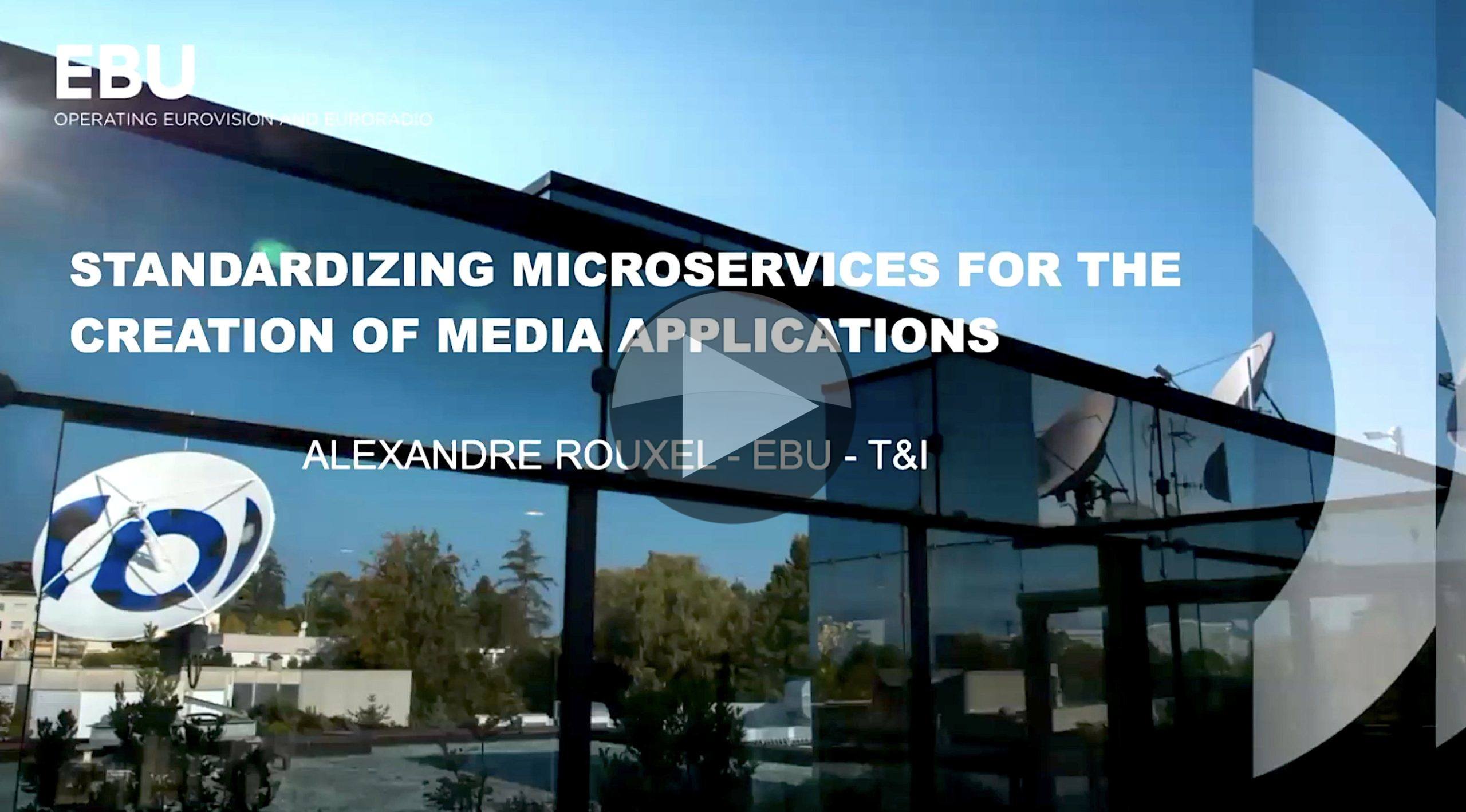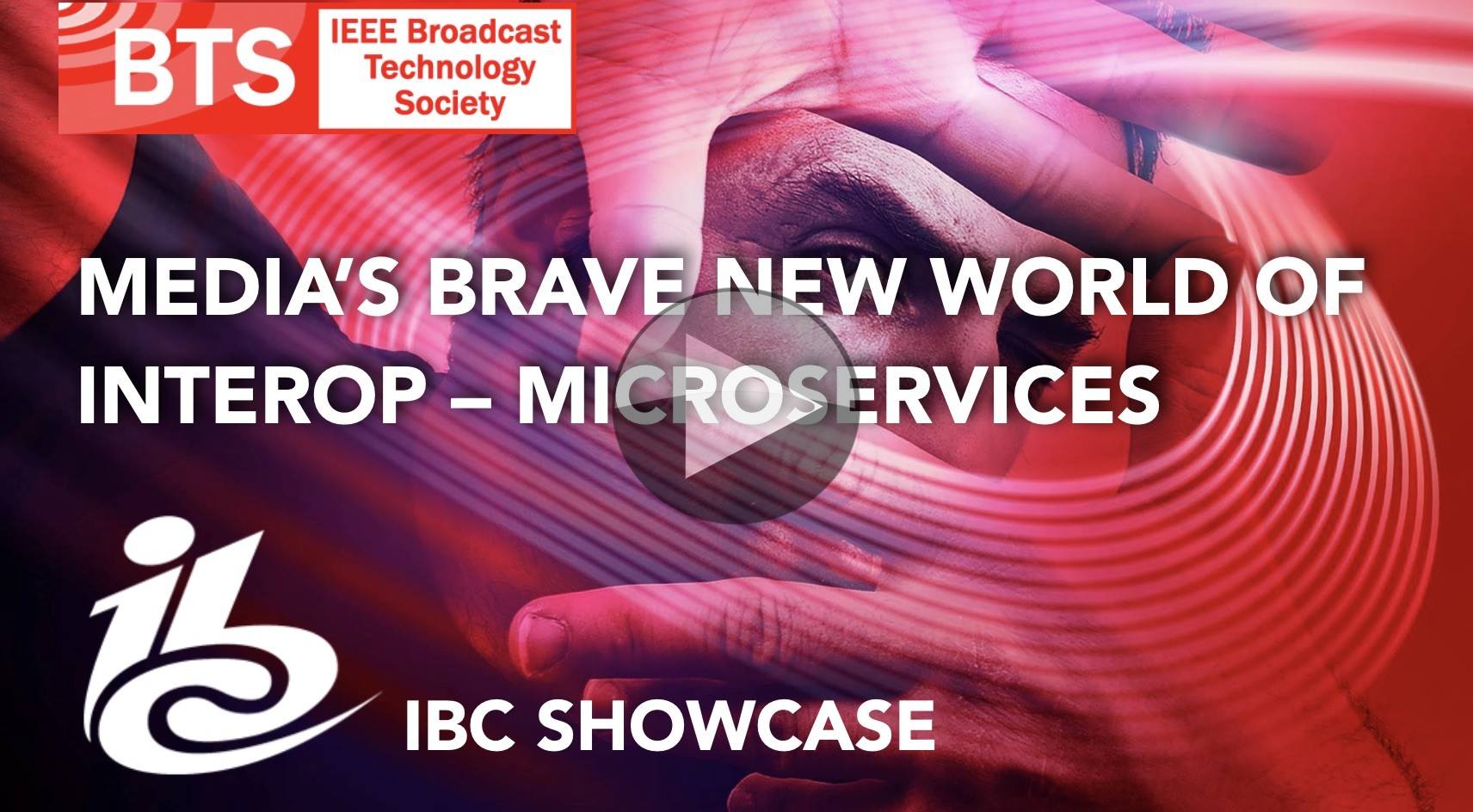Microservices are a way of splitting up large programs and systems into many, many, smaller parts. Building up complex workflows from these single-function modules makes has many benefits including simplifying programming and testing, upgrading your system seamlessly with no downtime, scalability and the ability to run on the cloud. Microservices were featured last week on The Broadcast Knowledge. Microservices do present challenges, such as orchestrating hundreds of processes into a coherent media workflow.
The EBU is working with SMPTE and the Open Services Alliance for Media on a cloud-agnostic open source project called MCMA, Media Cloud Microservice Architecture. The MCMA project isn’t a specification, rather it a set of software providing tools to enable a move to microservices. We hear from Alexandre Rouxel from the EBU and Loïc Barbou from Bloomberg that this project started out of a need from some broadcasters to create a scalable infrastructure that could sit on a variety of cloud infrastructure.
What is a service? Created a standard idea of a service that contains standard operations. Part of the project is a set of libraries that work with NodeJS and .net which deal with the code needed time and time again such as logging, handling data repositories, security etc. Joost Rovers explains how the Job Processor and Service Registry work together to orchestrate the media workflows and ensure there’s a list of every microservice available, and how to communicate with it. MCMA places shims in front of cloud services on GCP, AWS, Azure etc in order that each service looks the same. Joost outlines the libraries and modules available for MCMA and how they could be used.
Watch now!
Speakers
 |
Loïc Barbou Consultant, Bloomberg |
 |
Alexandre Rouxel Data Scientist & Project Coordinator, EBU |
 |
Joost Rovers Managing Director, Rovers IT |







